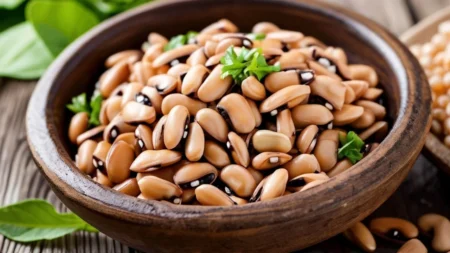In this comprehensive guide, we’ll explore effective strategies and practical tips to help athletes manage their weight and enhance their athletic performance. Whether you’re looking to maintain your optimal weight, gain muscle, or shed excess body fat, this article will provide you with the necessary tools and insights to achieve your goals.
Maintaining a healthy weight management regimen is crucial for athletes seeking to optimize their sports performance. From crafting a personalized athletic diet to incorporating strategic exercise for athletes, this guide will cover all the essential elements of weight management for those who strive to excel in their respective sports.
By diving into the intricate relationship between weight management and sports nutrition, you’ll learn how to strike the perfect balance between fuel and fitness, enabling you to reach new heights in your athletic endeavors.
Key Takeaways
– Proper weight management is crucial for athletic performance and overall health.
– Developing a personalized diet and exercise plan is key to achieving your weight goals.
– Understanding the impact of macronutrients and hydration on sports performance is essential.
– Incorporating strength training can help build lean muscle and support weight management.
– Effective stress management and recovery techniques are vital for weight control.
– Overcoming challenges and maintaining motivation are critical for long-term success.
Understanding the Importance of Weight Management for Athletes
Maintaining an appropriate weight is a critical factor for athletes, as it can significantly impact their sports performance. Carrying excess weight can impede an athlete’s speed, agility, and endurance, ultimately hindering their overall athletic capabilities. Conversely, being underweight can lead to a lack of muscle power and increased risk of injury, compromising an athlete’s ability to excel in their chosen sport.
Impact of Weight on Performance
The relationship between an athlete’s weight and their performance is a delicate balance. Optimal weight can enhance an athlete’s power-to-weight ratio, allowing for greater speed, acceleration, and maneuverability on the field or court. Excess body weight, on the other hand, can burden the athlete’s musculoskeletal system, leading to increased fatigue, reduced stamina, and decreased energy efficiency during training and competition.
Risks of Extreme Weight Fluctuations
Fluctuations in an athlete’s weight, especially rapid or extreme changes, can pose significant health risks and negatively impact their athletic performance. Dramatic weight loss can lead to muscle wasting, hormonal imbalances, and weakened immune function, while rapid weight gain can increase the risk of injury and cardiovascular strain. Understanding the potential dangers of extreme weight fluctuations is crucial for athletes to develop sustainable weight management strategies that prioritize their overall well-being and long-term success.
Setting Realistic Goals for Weight Management
Before embarking on a weight management plan, it’s crucial to determine your ideal weight range. This will help you set realistic and achievable goals, ensuring that you maintain optimal performance without compromising your health. By considering the unique demands of your sport, your current body composition, and your daily activity levels, you can develop a personalized weight management strategy that aligns with your athletic goals.
Determining Your Ideal Weight Range
Your ideal weight range is influenced by a variety of factors, including your sport, body type, and overall lifestyle. For instance, a sprinter may have a different ideal weight range than a long-distance runner, as the demands of their respective sports require different body compositions. Similarly, an athlete’s weight management goals may vary depending on whether they are focused on building muscle, losing fat, or maintaining their current weight.
Factors to Consider: Sport, Body Composition, and Lifestyle
When determining your ideal weight range, it’s essential to evaluate the specific requirements of your sport, your current body composition, and your daily activity levels. Consider the physical demands of your sport, such as the need for power, speed, or endurance, and how your weight may impact your performance. Additionally, assess your current body composition, including your muscle-to-fat ratio, to ensure that any weight changes are targeted towards improving your overall athletic capabilities.
Your lifestyle factors, such as your daily training regimen, recovery practices, and nutritional habits, can also influence your ideal weight range. By understanding how these elements contribute to your overall weight management, you can develop a strategy that supports your athletic goals while promoting your overall well-being.
Weight Management Strategies for Athletes
Effective weight management for athletes involves a combination of a well-structured, calorie-controlled diet and a balanced macronutrient intake. By creating a personalized diet plan that accounts for your energy needs, daily activity levels, and body composition goals, you can ensure that you’re consuming the right amount of calories to support your athletic performance.
Creating a Calorie-Controlled Diet Plan
Developing a calorie-controlled diet plan is a crucial step in your weight management strategies for athletes. This involves calculating your individual calorie requirements based on your sport, training regimen, and desired body composition goals. By monitoring your caloric intake and adjusting it as needed, you can maintain a healthy balance between energy consumption and energy expenditure, supporting your weight management efforts.
Macronutrient Ratios for Optimal Performance
Understanding the optimal macronutrient ratios (protein, carbohydrates, and fat) for your specific sport and training regimen can help you fuel your body for peak performance. Ensuring a balanced intake of these essential nutrients can support muscle growth, energy production, and overall athletic capabilities. Consult with a sports nutritionist or registered dietitian to determine the ideal macronutrient profile that aligns with your weight management and performance goals.
| Macronutrient | Recommended Percentage for Athletes | Benefits for Athletic Performance |
|---|---|---|
| Protein | 20-30% of total daily calories | Supports muscle growth, repair, and recovery; maintains lean body mass |
| Carbohydrates | 50-60% of total daily calories | Provides the primary fuel source for high-intensity exercise; replenishes glycogen stores |
| Fat | 20-30% of total daily calories | Supports hormone production, energy storage, and overall health |
Hydration and Fueling Strategies for Athletes
Proper hydration and fueling strategies are essential components of weight management for athletes. Ensuring adequate fluid intake before, during, and after training and competition can help maintain optimal body function and prevent dehydration, which can negatively impact athletic performance and recovery. Additionally, developing a strategic plan for nutrient intake, such as consuming the right types and amounts of carbohydrates, proteins, and fats, can help athletes fuel their bodies for peak performance while supporting their weight management goals.
Staying Hydrated During Training and Competition
Staying hydrated is crucial for athletes to maintain their weight and optimize their sports performance. Proper hydration strategies for athletes involve consuming the appropriate amount of fluids before, during, and after physical activity. This not only helps regulate body temperature and maintain optimal organ function but also supports muscle recovery and reduces the risk of dehydration-related issues that can impair fueling athletes for training and competition.
To ensure adequate sports nutrition for weight management, athletes should develop a personalized hydration plan that takes into account factors such as the duration and intensity of their training or competition, environmental conditions, and individual sweat rates. This may involve consuming a mix of water, electrolyte-rich beverages, and nutrient-dense fluids to replenish the body’s essential nutrients and maintain proper fluid balance.
| Hydration Recommendations for Athletes | Before Activity | During Activity | After Activity |
|---|---|---|---|
| Fluid Intake | 17-20 oz (500-600 ml) 2-3 hours before | 3-8 oz (90-240 ml) every 15-20 minutes | 20-24 oz (600-720 ml) per pound (0.5 kg) of body weight lost |
| Electrolyte Intake | Replenish with electrolyte-rich beverages | Consume electrolyte-containing drinks or foods | Replenish with electrolyte-rich beverages and foods |
Incorporating Strength Training for Weight Management
As an athlete, incorporating strength training into your weight management plan can be highly beneficial. Resistance exercises not only help build lean muscle mass, but they can also increase your metabolic rate and enhance your overall athletic performance.
Benefits of Resistance Training for Athletes
By engaging in a well-designed resistance training program, you can unlock a multitude of advantages that support your weight management goals. Some of the key benefits include:
- Increased muscle strength and power, which can improve your performance in sports that require explosiveness and force production.
- Enhanced body composition, with a higher proportion of lean muscle mass and lower levels of body fat.
- Boosted metabolic rate, leading to a higher calorie burn both during exercise and at rest.
- Improved bone density, reducing the risk of injuries and supporting long-term athletic longevity.
- Enhanced movement efficiency and coordination, enabling better technique and skill execution in your sport.
Designing a Strength Training Program
To effectively incorporate strength training into your weight management strategy, it’s essential to design a program that aligns with the specific demands of your sport and your individual goals. Consider the following factors when creating your strength training program:
| Factors to Consider | Recommendations |
|---|---|
| Exercise Selection | Choose exercises that target the muscle groups most crucial for your sport, such as compound movements like squats, deadlifts, and pull-ups. |
| Training Volume and Intensity | Adjust the volume (sets and reps) and intensity (weight/load) based on your current fitness level, training phase, and desired adaptations. |
| Periodization | Implement a periodized approach, cycling between phases of hypertrophy, strength, and power development to optimize your results. |
| Recovery and Nutrition | Ensure adequate rest, sleep, and nutrient intake to support muscle growth, recovery, and overall weight management efforts. |
By designing a personalized strength training program that considers the unique demands of your sport and your individual needs, you can effectively manage your weight while enhancing your athletic capabilities.
Managing Stress and Recovery for Weight Control
As an athlete, managing stress and prioritizing recovery are essential for maintaining a healthy weight and optimizing your athletic performance. High levels of stress can disrupt your hormonal balance, leading to unwanted weight fluctuations and negatively impacting your overall performance.
Impact of Stress on Weight and Performance
Chronic stress can cause an increase in cortisol, the body’s main stress hormone. Elevated cortisol levels can drive cravings for high-calorie, comfort foods, leading to weight gain. Additionally, stress can contribute to muscle breakdown, making it more challenging to maintain or build lean muscle mass. This combination of factors can have a significant impact on your weight and impair your athletic abilities, such as endurance, strength, and agility.
Recovery Techniques for Athletes
To counteract the negative effects of stress and support your weight management goals, it’s crucial to implement effective recovery techniques. Some strategies to consider include:
- Adequate Sleep: Aim for 7-9 hours of quality sleep each night to allow your body to rest, repair, and recharge.
- Active Rest: Engage in light, low-intensity activities like walking, yoga, or light stretching to promote recovery and reduce stress.
- Relaxation Practices: Incorporate stress-reducing activities such as meditation, deep breathing exercises, or mindfulness practices into your routine.
- Nutritional Support: Ensure you’re fueling your body with a balanced, nutrient-dense diet that includes foods rich in antioxidants, anti-inflammatory compounds, and stress-reducing nutrients.
By proactively managing your stress levels and prioritizing recovery, you can maintain a healthy weight, optimize your physical and mental well-being, and enhance your overall athletic capabilities.
Overcoming Challenges and Staying Motivated
Weight management for athletes can be a challenging and ongoing process, with potential plateaus and setbacks along the way. Developing strategies to overcome these obstacles and maintain motivation is essential for achieving and sustaining your weight management goals.
Dealing with Plateaus and Setbacks
Inevitably, you may encounter plateaus where your progress seems to stall, or setbacks that test your commitment. During these times, it’s important to remain patient and adjust your approach. Seek guidance from a sports nutritionist or coach who can help you identify the root causes and make necessary modifications to your diet, training regimen, or recovery plan.
Strategies for Maintaining Motivation
Maintaining motivation can be a critical factor in your weight management journey. Celebrate small victories, set incremental goals, and surround yourself with a supportive network of teammates, coaches, and loved ones. Experiment with various techniques, such as visual reminders, self-affirmations, and rewarding yourself for milestones achieved. By embracing a growth mindset and employing effective coping mechanisms, you can navigate the ups and downs of weight management and continue to excel in your sport.
Remember, weight management for athletes is a lifelong process that requires patience, flexibility, and a commitment to your overall health and performance. With the right strategies and a determined mindset, you can overcome the challenges and stay motivated to achieve your weight management goals.
FAQ
What is the impact of weight on athletic performance?
Carrying excess weight can negatively impact an athlete’s speed, agility, and endurance, while being underweight can lead to a lack of muscle power and increased risk of injury. Maintaining an appropriate weight is crucial for optimal athletic performance.
What are the risks of extreme weight fluctuations for athletes?
Extreme weight fluctuations can disrupt an athlete’s hormonal balance, leading to various health issues and negatively impacting their overall athletic capabilities. Maintaining a stable weight within a healthy range is essential for athletes.
How can athletes determine their ideal weight range?
Determining an athlete’s ideal weight range should consider factors such as their specific sport, body composition, and lifestyle. By understanding these unique factors, athletes can set realistic and achievable weight management goals.
What are the key components of an effective weight management plan for athletes?
An effective weight management plan for athletes involves a combination of a well-structured, calorie-controlled diet and a balanced macronutrient intake. Proper hydration and fueling strategies, as well as incorporating strength training, are also crucial elements of this plan.
How can athletes manage stress and optimize recovery for weight control?
High levels of stress can disrupt hormonal balance and negatively impact weight and athletic performance. Implementing effective recovery techniques, such as adequate sleep, active rest, and relaxation practices, can help athletes maintain their weight and optimize their physical and mental well-being.
What strategies can athletes use to overcome challenges and stay motivated in their weight management journey?
Overcoming plateaus and setbacks, as well as maintaining motivation, are key challenges in weight management for athletes. Developing a growth mindset, seeking professional guidance, and employing effective coping mechanisms can help athletes navigate these obstacles and continue to excel in their sport.











